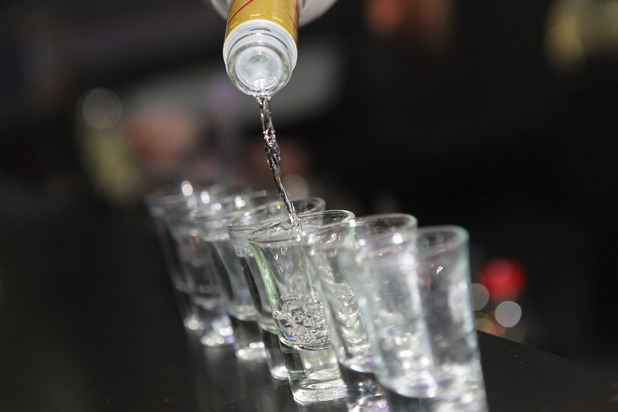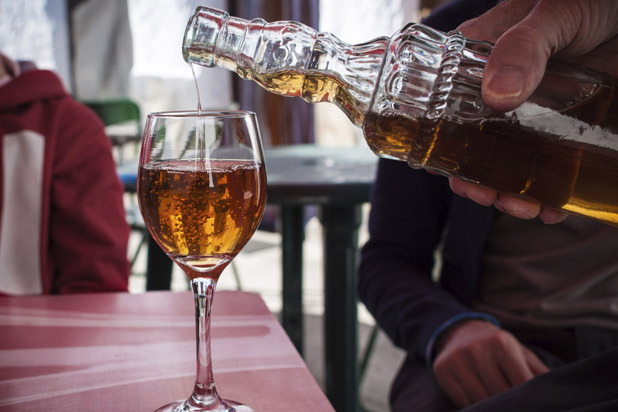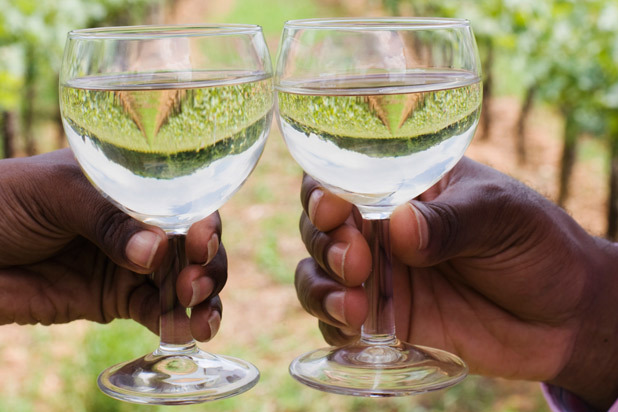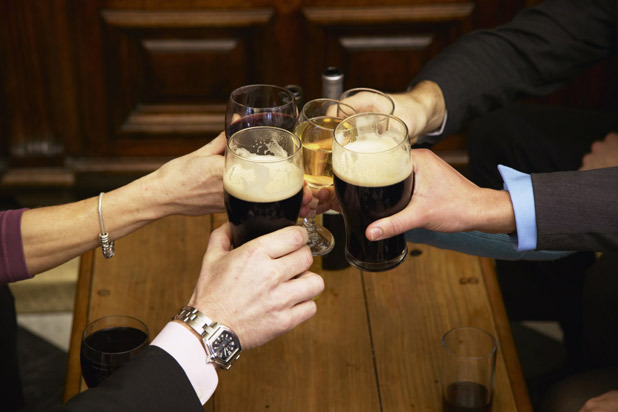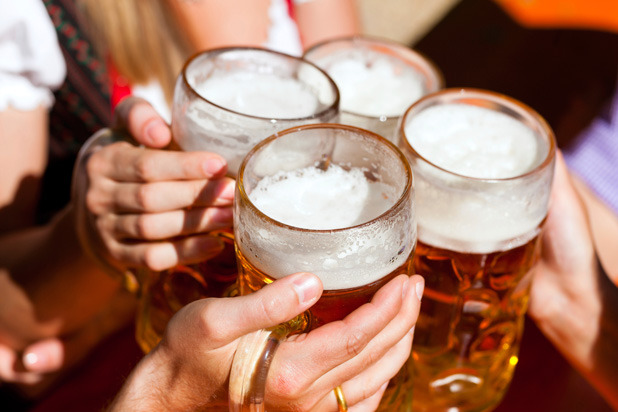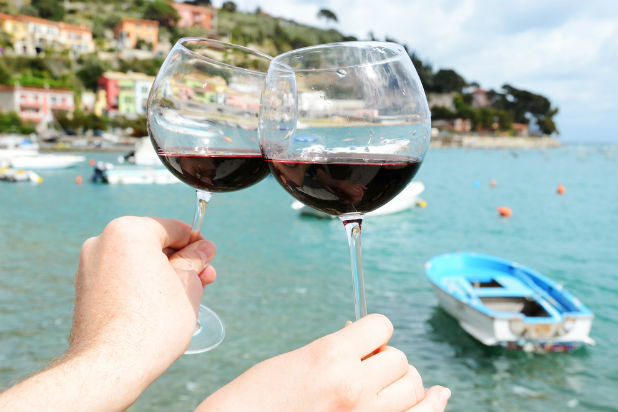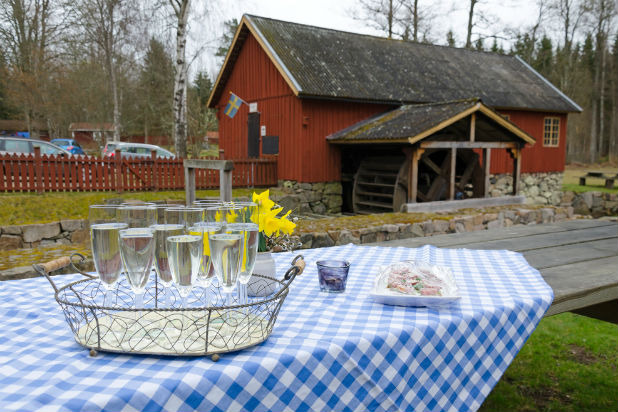10 Ways To Say ''Cheers!'' Around The World (Slideshow)
As Masha Vapnitchnaia discussed in "Drinking Like a Russian During the Sochi Winter Olympics," toasts with vodka are an integral part of Russian drinking culture. There isn't a direct transliteration of "cheers," but the simplest toast — and one that's often used — is to drink to someone's health: за ваше здоровье. Don't read Cyrillic? That's cool, neither do we. It's pronounced: "Za vashe zdorovye."
Portuguese
If you're drinking in Brazil, chances are high that you're going to encounter cachaça, a sweet, clear rum that is popular throughout the country. Be forewarned though: although the drink is served in a shot glass, it is not considered polite to shoot it back the way you might here in the States. You can sip it, or mix it into a caipirinha, Brazil's national cocktail. When you cheers, you can say either "Saúde" (pronounce it saw-OO-jay) or "tim-tim," (pronounced ching ching, similar to Italian).
Turkish
In Turkey, drinking culture often revolves around an anisette liquor called rakı. Clear in the bottle, rakı turns milky white once mixed with water, and it's usually served with water and ice. Nicknamed "aslan sütü" which means "lion's milk,"rakı is never drunk by itself, but always paired with food, especially beyaz peynir (white cheese) and kavun (cantaloupe). To cheers, clink glasses and say "şerefe" (pronounced shey-reh-FEY).
Spanish
In nearly any bar or dance club along Spain's gorgeous Costa del Sol, you can find yourself with free shots of ron de miel, or honey rum. Buy a shot of anything, get a free shot of honey rum. Buy a shot of honey rum, get another shot of honey rum. Promotions often include a shot of honey rum for just stepping in the door. If you overindulge, this stuff will give you a sincere hangover, but if you play your cards right, you can have a nice night out without spending a bunch of cash. A quick cheers, said with each shot, is just "salud," pronounce "sah-lud."
French
Sure, the French are famous for their beautiful wines, but they're also credited with some killer cocktails: the sidecar, for instance, allegedly hails from the Ritz Hotel in Paris, a French 75 is a distressingly delicious aperitif that comes from World War I-era France, and the kir royale is such a classic champagne cocktail that it appears in French grammar textbooks. Whether you're sipping a delicious Sancerre or clinking glasses over something a little heavier, you can always cheers your partners in French with a quick "to your health," or "A votre santé," prounounced "Ah VOH-tre sahn-TAY."
Gaelic
Whether you're more inclined to knock back Jameson or Bushmill's, it's a good idea to know the Irish way of saying "cheers!" Even if you're not lucky enough to ever visit the Emerald Isle yourself, you'll undoubtedly end up sipping a pint of Guinness in an Irish pub, and knowing the Irish way to say "cheers" will always come in handy. The Irish sláinte, which nobody who isn't an expert in Irish orthography would know how to pronounce on sight, is pronounced "SLAN-tche."
Mandarin
In China, the drinking culture is quite prevalent, especially among businesspeople. You can be expected to drink quite a lot, and it's considered impolite to say no once the party has started — women can get more of a pass than men, however, and a pregnant woman is, naturally, not expected to participate. The "cheers" of Mandarin is 干杯, Pronounced "gan bey." Meaning "bottoms up," 干 means empty or dry, and 杯 means glass.
German
As anyone who has ever attended an Oktoberfest or German beer garden knows, the Germans know their beer. The drinking culture in Germany has a lot of traditions and a lot of amazing brews. "Prost," pronounced "proost," is the traditional "cheers," and it is considered customary to toast everyone at the table whenever anyone says "Prost." If you don't look directly into their eyes, you may be sentenced to seven years of bad sex.
Italian
The Italian cheers, "cin cin" (pronounced "chin-chin") is so well-understood around the world that you can get away with it in most countries and they'll understand exactly what you mean. Other than, um, Japan. Don't say chin-chin in Japan – where it's an, ahem, reference to the male anatomy. Whether you're toasting with a Campari or a glass of prosecco, don't neglect the cutest Italian cheers.
Swedish
The Swedish toasting word is written Skål and pronounced "skoal," just like the American smokeless tobacco product, only delicious, not disgusting. The word "skål" means "bowl," which is about as literal and old-school as it gets, toast-wise. The Swedes are known for their vodka drinking, but they're also proponents of brännvin, which literally translates to "burn-wine." Yeah, there's a reason death metal is still big in Northern Europe.
